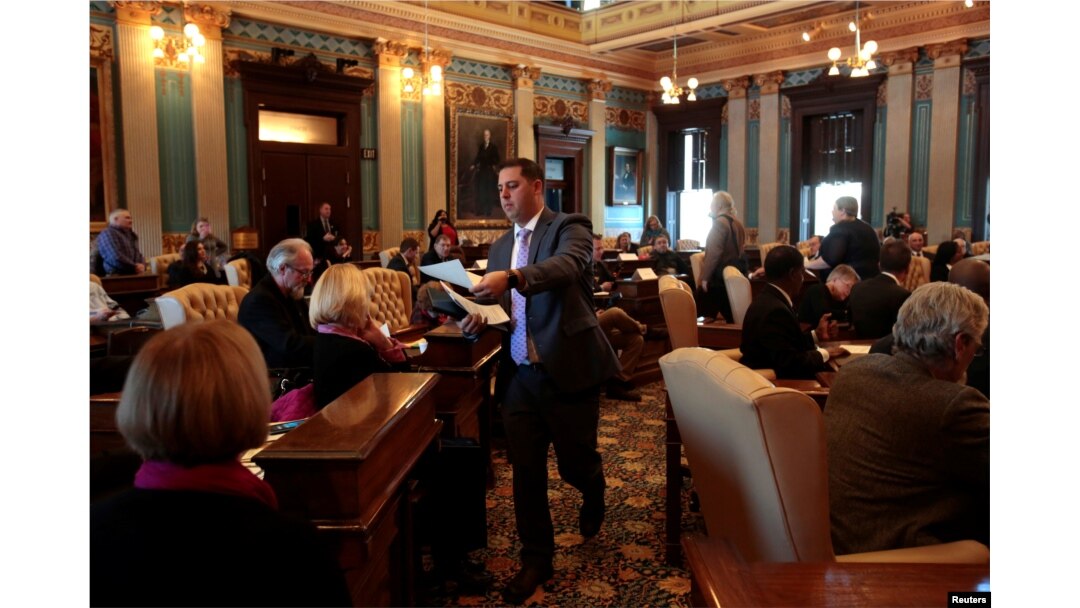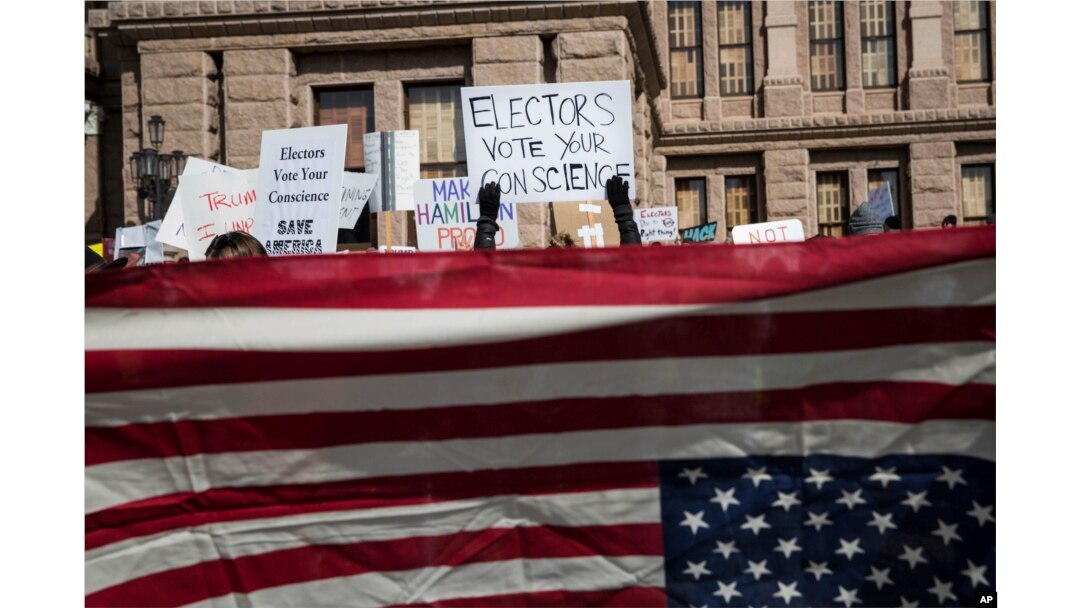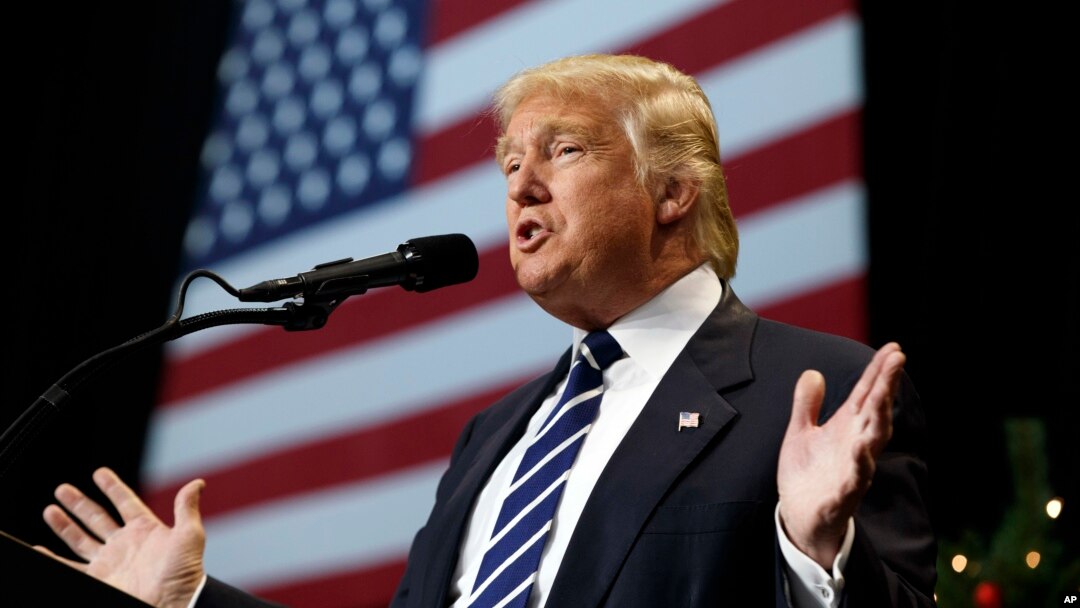The end of the 2016 presidential election is at hand.
A joint session of Congress is set to count the Electoral College votes Friday, a traditional ending to a most unconventional presidential election.
Friday's vote count marks the last chance for Democrats and other anti-Trump forces to disrupt Donald Trump's election. But even if they are successful, the most Democrats could do is slow the process because they don't have the votes to overturn the outcome.
Barring something bizarre happening, Trump will be declared the winner and will be sworn in at his inauguration January 20. Vice President Joe Biden will preside over the vote count in his role as president of the Senate.

FILE - Ballots are passed out to 16 Electors on the Michigan Senate floor for them to cast their formal votes for the president and vice president of the United States in Lansing, Michigan, Dec. 19, 2016.
All 538 electors met in their respective state capitals in December to cast their votes. Trump finished with 304 votes and Democrat Hillary Clinton with 227, according to a tally by The Associated Press. It takes 270 Electoral College votes to win the presidency.
Trump won even though Clinton received nearly 2.9 million more votes. His election has generated much angst among Democrats and others who oppose the billionaire businessman. But they have been powerless to change the outcome.
Despite rumblings of a revolt, only two Republican electors — both from Texas — cast protest votes for someone other than Trump. Clinton lost four Democratic electors in Washington state and one in Hawaii.
The secretary of state's office in Washington said the “faithless” electors would be fined $1,000 apiece.

FILE - Demonstrators gather outside the Texas State Capitol in an attempt to influence the Republican electors from across the state to not vote for Donald Trump when they cast their formal ballots for president of the United States in Austin, Texas, Dec. 19, 2016.
During Friday's session, Democrats will have an opportunity to file objections, questioning the validity of the vote count.
Under federal law, if at least one senator and one House member object to the vote from any state, the House and Senate would meet separately to debate the merits of the objection.
Several House Democrats have talked about filing an objection, but no senator has publicly backed the idea. Regardless, with Republicans controlling both chambers, any objection would have little chance of affecting the outcome.
House Democratic Leader Nancy Pelosi said she isn't encouraging people to object. But, she added, “I will be there and I will support those who object.”
Some Democrats want to register their objections because of U.S. intelligence community findings that Russia engaged in computer hacking to sway the election in favor of Trump. America's top intelligence official told Congress on Thursday that Russia undoubtedly interfered in the 2016 presidential election.
“It's not going to have an impact at the end of the day,” Pelosi said of the objections. But, she said, “People don't want the day to pass without registering concern.”
Trump has not fully embraced the findings of the intelligence community. In fact, he has repeatedly mocked America's intelligence officials.


